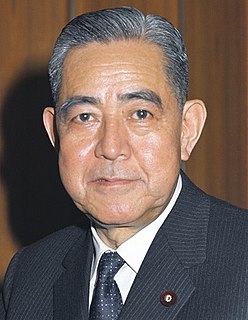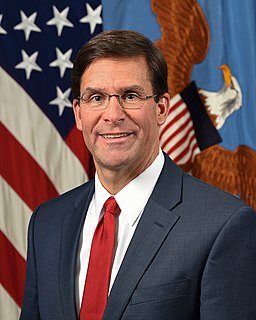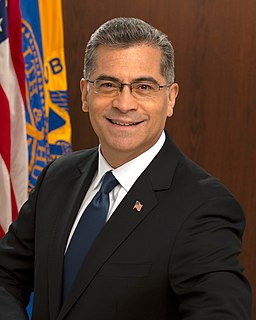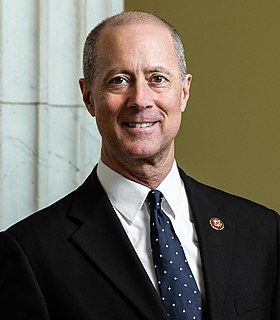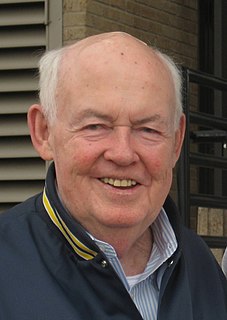A Quote by Eisaku Sato
The international order established at the end of World War II could certainly have been worse. However, this order did contain certain factors which bore within them the seeds of instability.
Related Quotes
We have to recognize that the reason that the global order that we've enjoyed and almost take for granted over the last several years exists is that after World War II, the United States and its allies tried to build an antidote to what they had seen between World War I and World War II. There, they'd seen protectionism, beggar-thy-neighbor trading policies, so they said, we'll build an open international economy. And they did that.
The old world order changed when this war-storm broke. The old international order passed away as suddenly, as unexpectedly, and as completely as if it had been wiped out by a gigantic flood, by a great tempest, or by a volcanic eruption. The old world order died with the setting of that day's sun and a new world order is being born while I speak, with birth-pangs so terrible that it seems almost incredible that life could come out of such fearful suffering and such overwhelming sorrow.
However, there is a fundamental difference between the issue related to Japan's history and our negotiations with China. What is it all about? The Japanese issue resulted from World War II and is stipulated in the international instruments on the outcomes of World War II, while our discussions on border issues with our Chinese counterparts have nothing to do with World War II or any other military conflicts. This is the first, or rather, I should say, the second point.
It's important to remember that World War II was experienced very much as a continuity in that sense. Most of World War II in most of Europe wasn't a war; it was an occupation. The war was at the beginning and the end, except in Germany and the Soviet Union, and even there really only at the end. So the rest of time it's an occupation, which in some ways was experienced as an extension of the interwar period. World War II was simply an extreme form, in a whole new key, of the disruption of normal life that began in 1914.
When World War II came along, which was when I was a teenager, we all expected we would have anthrax bombs and this kind of stuff. We thought it would be a biological war. Fortunately it wasn't and, but it's because the danger is still there and by some miracle we escaped all that, so you never can tell what it going to happen, but biology certainly could be even worse than physics and chemistry.
I've always disliked kamikazes, that is, people who commit suicide in order to kill others. Starting with the Japanese ones from World War II. I never considered them Pietro Miccas who torch the powder and go up with the citadel in order to block the arrival of the enemy troops at Torino. I never considered them soldiers.
Out of these troubled times, our fifth objective - a New World Order - can emerge. . . Now, we can see a New World Order coming into view. A world in which there is a very real prospect for a New World Order. . .A world where the United Nations, freed from a Cold War stalemate, is poised to fulfill the historic vision of its founders.
